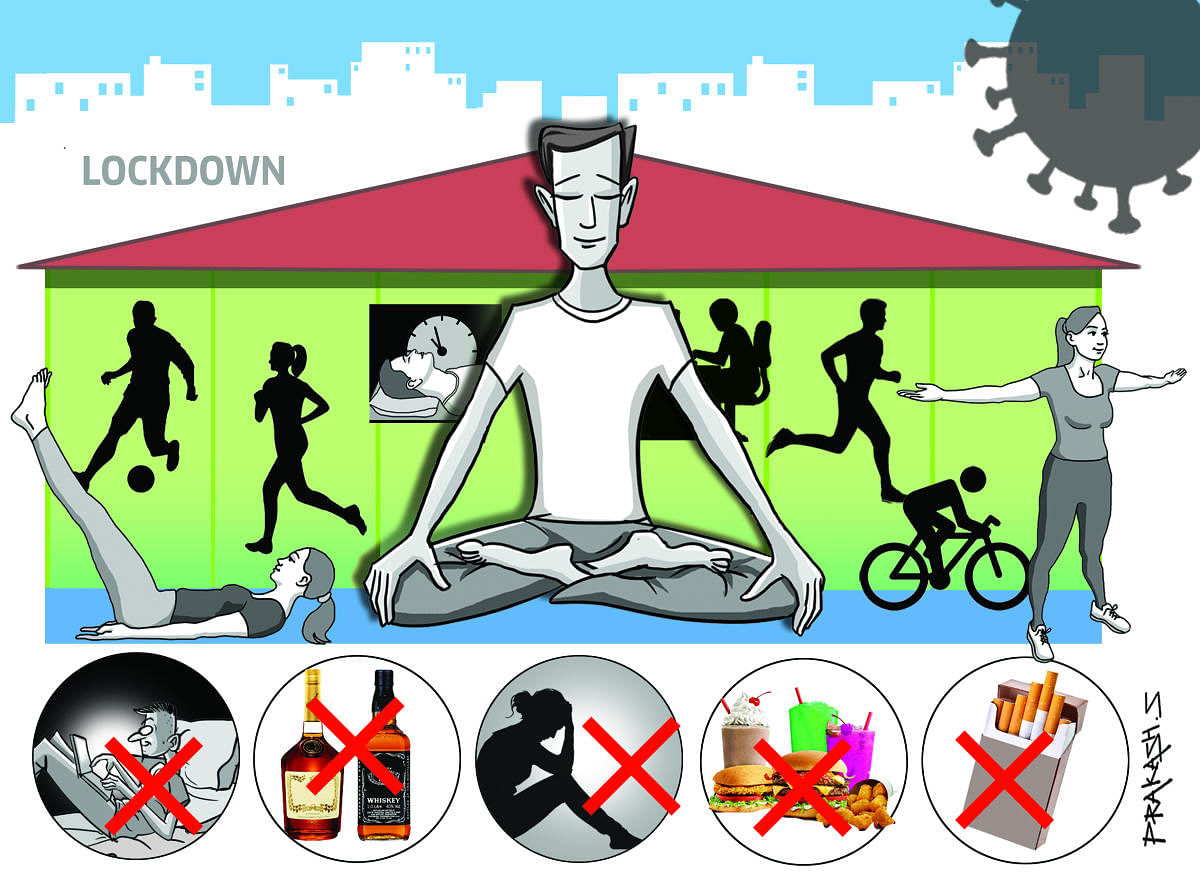
Food experts say that despite fancy workout routines, and fad diets, the millennial generation is the most unhealthy at work. Both physically and mentally, the youth is missing out on the mark of staying fit in hundreds of ways.
Sheela Krishnaswamy, a nutrition and wellness consultant, lists out a few dietary guidelines that can help you remain fit during the pandemic. She says, “Eating too little or too much can lead to an imbalance in nutrition. So, one should eat the right quantity and quality of foods suited to their needs. Make sure to include all food groups in the meal plan — whole grains, pulses, all varieties of vegetables and fruits, nuts and seeds, dairy, eggs and meats (optional), small amounts of fats, and adequate water.”
“Use green leafy vegetables on most days of the week. Coriander and curry leaves can be used every day. One should also eat at least one fresh fruit and three cups of vegetables every day, preferably seasonal ones,” she adds. Sheela says that one must ensure adequate hydration, regular exercise, adequate sleep, and exposure to sunshine daily. “One must try avoiding/restricting refined carbohydrates (maida and sugar), fatty foods, fried dishes, oily gravies, salty snacks, sweets, desserts, etc.”
Dr Priyanka Rohatgi, chief clinical dietician at a private hospital, says, “Eat fruits and vegetables that pack nutrients and help lower the risk for certain diseases. Limit your portion sizes and foods high in fat, salt, and sugar. Also, be active for at least two and a half hours a week and help kids and teens be active for at least one hour a day.”
She says medical screening is important, and one must keep in touch with the healthcare provider about what tests one needs and when to get them. One must also regularly update their personal and family history.
Alcohol intake in the youth has increased dramatically in the work-from-home situation. Recreational alcohol use in a limited number of units per week is safe; however, over-consumption and unmonitored consumption can lead to grave health issues regardless of age.
Dr Priyanka says, “Stay well hydrated but not with alcohol. If you are firmly ensconced at home, those alcohol units can really mount up. Keep tabs on how much you are drinking, and intersperse alcoholic drinks with soft ones. Watch out on the accompaniments (stay away from fried, packaged high fat, sugar and salt stuff).”
Another issue that is affecting the health of the youth since the pandemic is smoking. Many resort to stress-smoking because of the workload and the pressure of deadlines, but little do people realise that smoking puts them at a risk of cancer and other diseases like blood pressure, coronary heart disease, etc. Dr Priyanka says, “Be smoke-free. Avoid smoking and second-hand smoke. Smokers have greater health risks because of their tobacco use, but non-smokers also are at risk when exposed to tobacco smoke.”
Dedicating time away from social media and reducing screen time per day can help the youth combat mental health issues.
Dr Priyanka adds, “Engage your brain, not the gadget, and get enough sleep. Instead of sitting in front of the TV, keep your mind active by playing games like charades. This is also a great way of getting everyone together. If you are not a ‘game’ person, stay away from gadgets like PlayStations, iPads, mobile phones or laptops.”